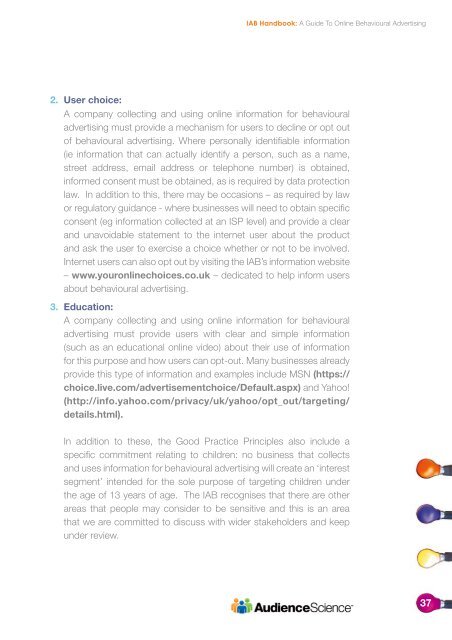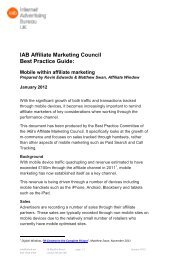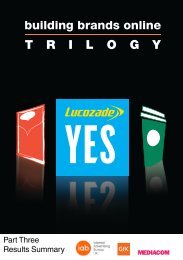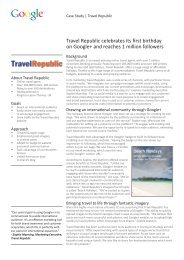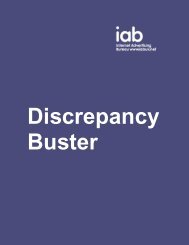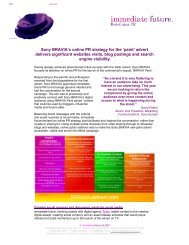Download publication - IAB UK
Download publication - IAB UK
Download publication - IAB UK
Create successful ePaper yourself
Turn your PDF publications into a flip-book with our unique Google optimized e-Paper software.
<strong>IAB</strong> Handbook: A Guide To Online Behavioural Advertising<br />
2. User choice:<br />
A company collecting and using online information for behavioural<br />
advertising must provide a mechanism for users to decline or opt out<br />
of behavioural advertising. Where personally identifiable information<br />
(ie information that can actually identify a person, such as a name,<br />
street address, email address or telephone number) is obtained,<br />
informed consent must be obtained, as is required by data protection<br />
law. In addition to this, there may be occasions – as required by law<br />
or regulatory guidance - where businesses will need to obtain specific<br />
consent (eg information collected at an ISP level) and provide a clear<br />
and unavoidable statement to the internet user about the product<br />
and ask the user to exercise a choice whether or not to be involved.<br />
Internet users can also opt out by visiting the <strong>IAB</strong>’s information website<br />
– www.youronlinechoices.co.uk – dedicated to help inform users<br />
about behavioural advertising.<br />
3. Education:<br />
A company collecting and using online information for behavioural<br />
advertising must provide users with clear and simple information<br />
(such as an educational online video) about their use of information<br />
for this purpose and how users can opt-out. Many businesses already<br />
provide this type of information and examples include MSN (https://<br />
choice.live.com/advertisementchoice/Default.aspx) and Yahoo!<br />
(http://info.yahoo.com/privacy/uk/yahoo/opt_out/targeting/<br />
details.html).<br />
In addition to these, the Good Practice Principles also include a<br />
specific commitment relating to children: no business that collects<br />
and uses information for behavioural advertising will create an ‘interest<br />
segment’ intended for the sole purpose of targeting children under<br />
the age of 13 years of age. The <strong>IAB</strong> recognises that there are other<br />
areas that people may consider to be sensitive and this is an area<br />
that we are committed to discuss with wider stakeholders and keep<br />
under review.<br />
37


